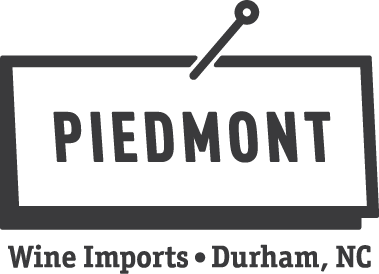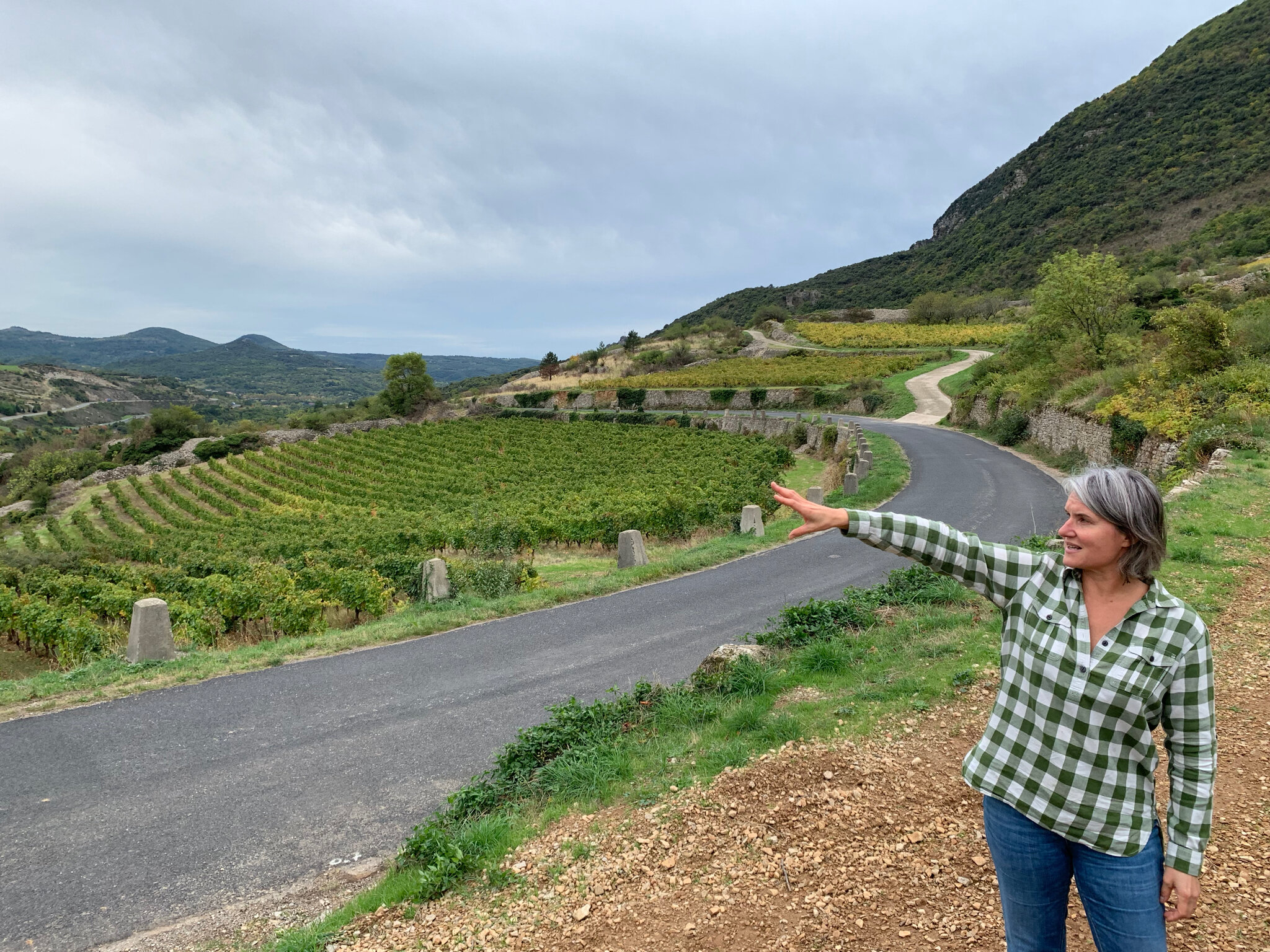
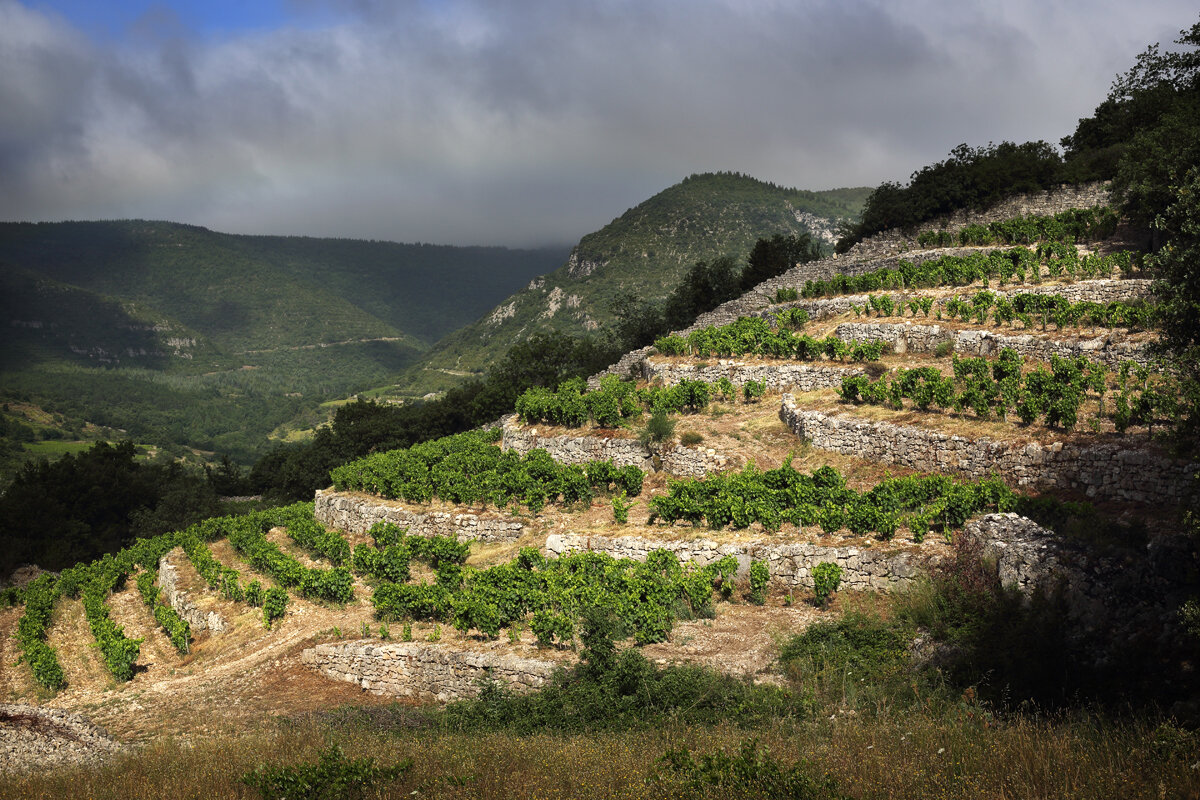
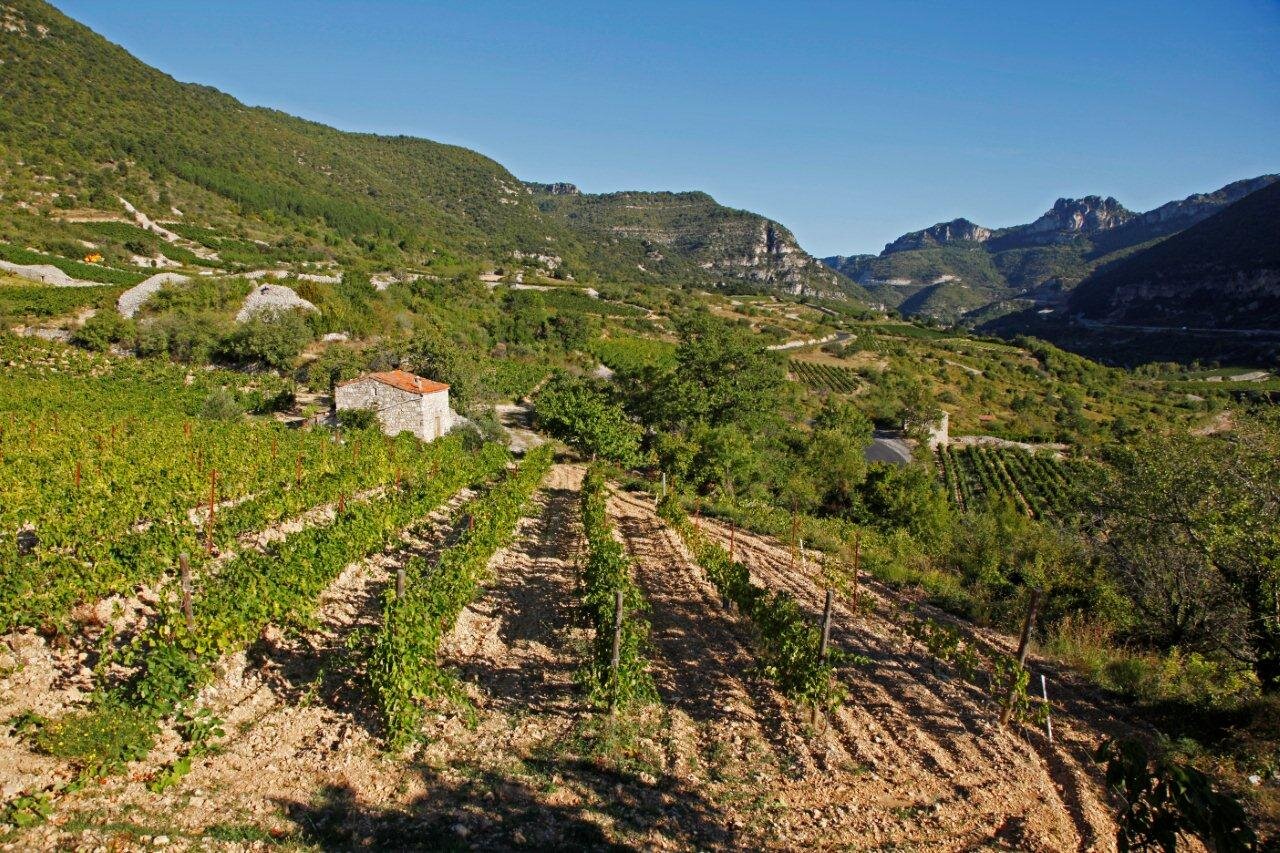
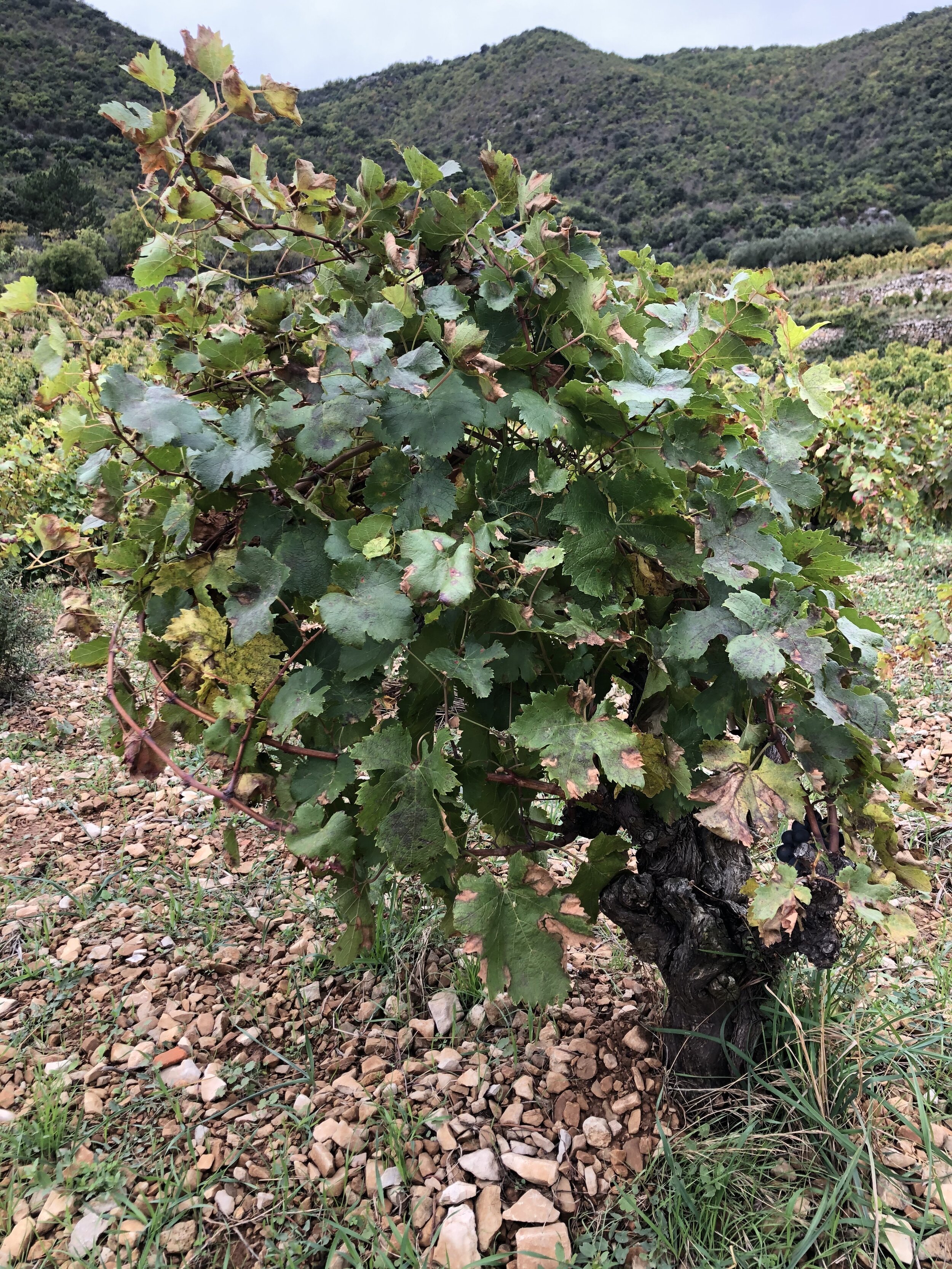
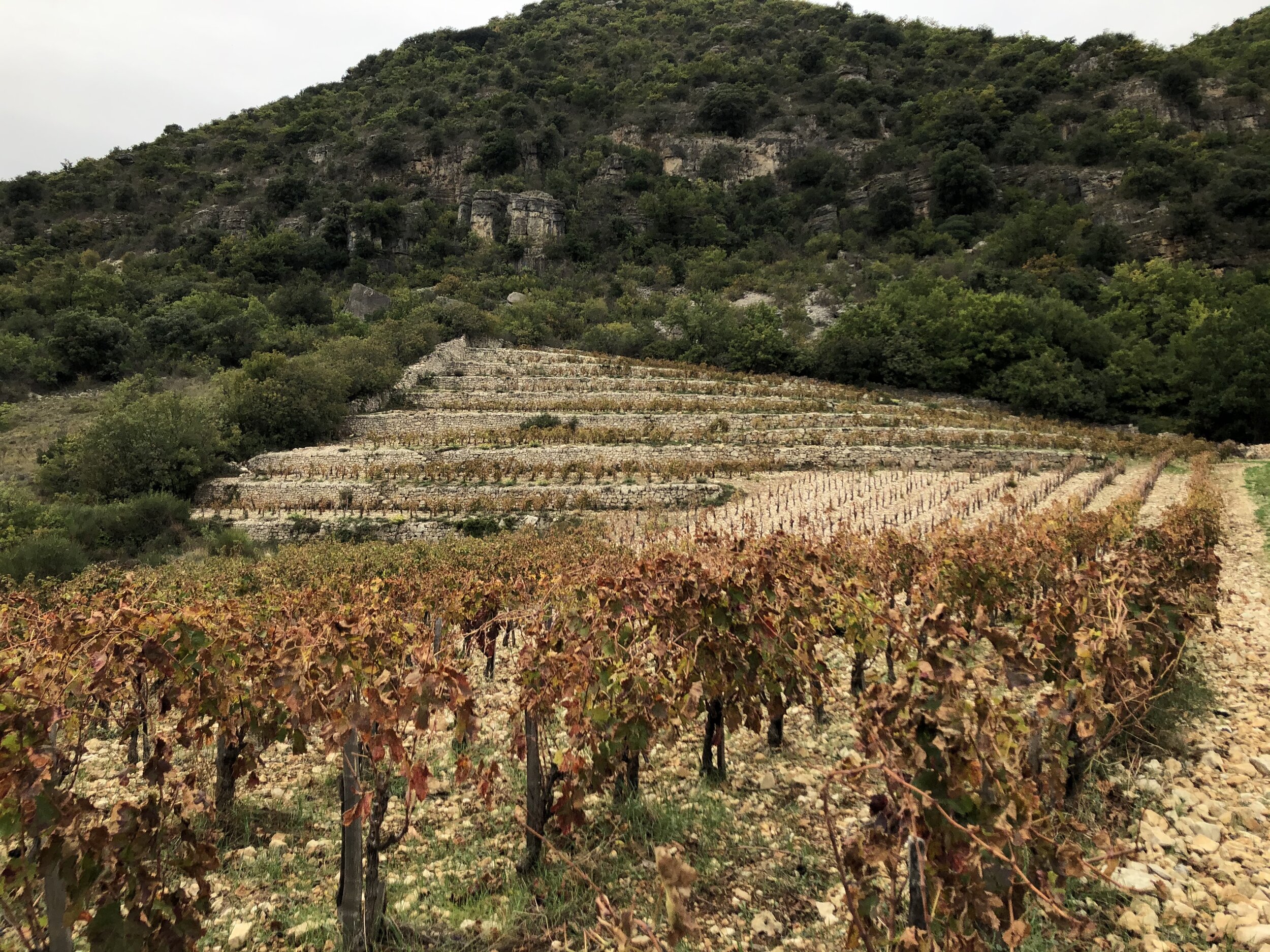

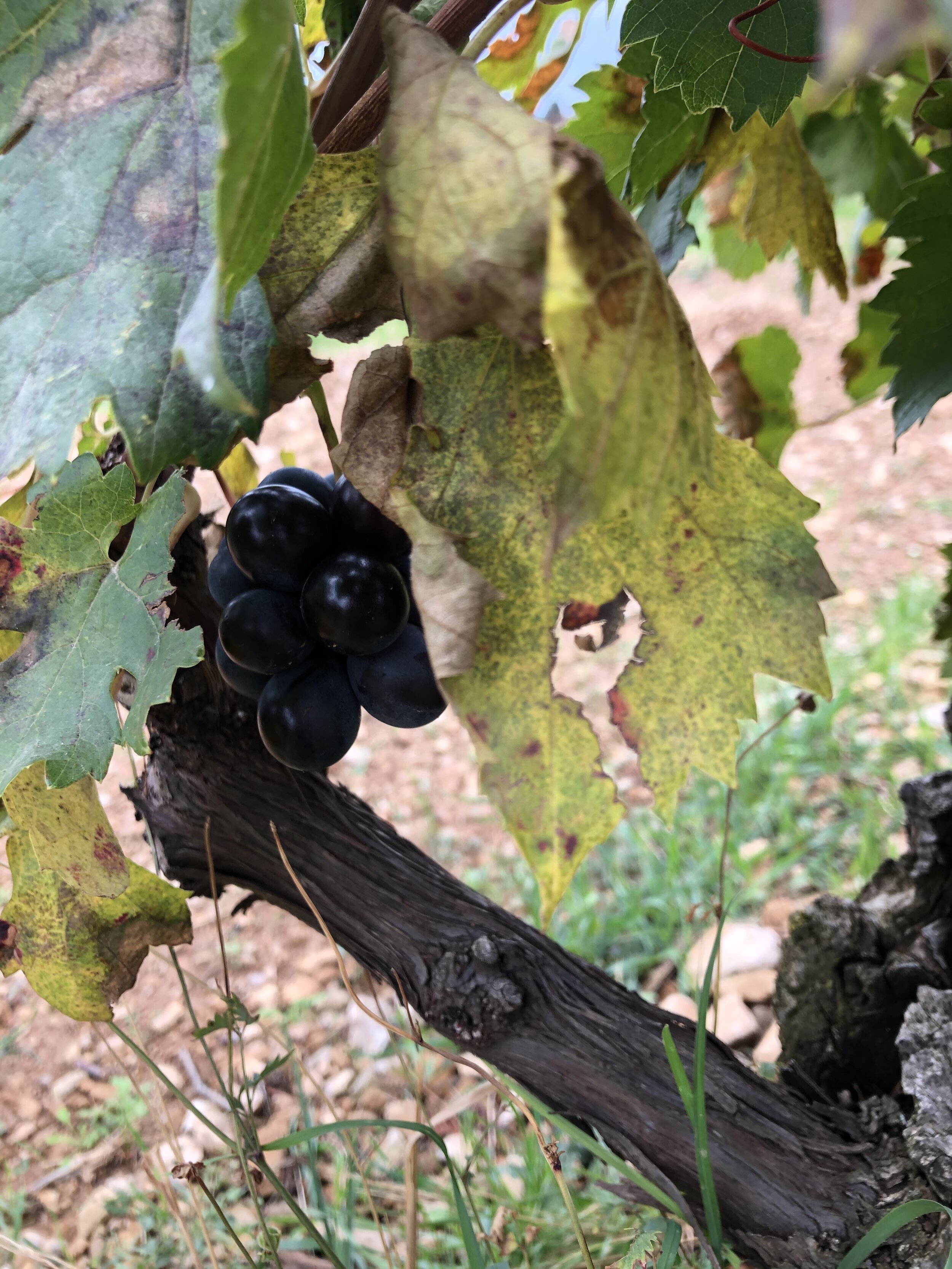
Domaine du Pas de l’escalette
Who: Delphine Rousseau and Julien Zernott
Where: Poujols (Languedoc, France)
What grapes: Grenache Blanc, Carignan Blanc, Grenache Gris, Terret Bourret, Grenache, Cinsault, Carignan, Syrah, Mourvedre
Key facts: Delphine and Julien own 35 hectares of land with about 20 hectares planted to vines. The vineyards are spread over 50 terraces on either side of the valley of Pegairolles de l’escalette and Lauroux. All vines on the property are head trained, are propagated using Selection Massale and range in age from newly planted to 80 years old. Certified Organic FR-BIO-01 and Certified Biodynamic by Biodyvin.
Website: http://pasdelescalette.com/home/
Instagram: @pasdelescalette
Domaine du Pas de l’Escalette “Les Clapas Blanc” Languedoc AOC
Viticulture: Organic / Biodynamic
Soil type: Calcium Rich Limestone-Clay
Elevation: 350m
Grapes: Grenache Blanc 40%, Carignan Blanc 40%, Grenache Gris 10%, Terret Bourret 10%
I could tell you more, but it’s all for me ( and me! ). Eighty four bottles. You may pry one from my cold dead Charlton Heston paw, via flattery and extravagant ordering of our other new wines. — JM
Domaine du Pas de l’Escalette “Ze Rosé” Languedoc AOC
Viticulture: Organic / Biodynamic
Soil type: Calcium Rich Limestone-Clay
Elevation: 350m
Grapes: Grenache 50%, Cinsault 40%, Carignan 10%
Ze Rosé is back! Only 600 bottles of the 2023 vintage will be available in North Carolina. The wine is a nice combo of that irresistible Mediterranean citrus that is present in top pink wines from Provence, with a little more tart red fruit. Accessible, dry, and a million miles from the banal rosé that has encroached on our wine marketplace in recent years. Larzac is a distinct place, dramatic, removed in elevation and terroir from much of the Languedoc. Even in this affordable pink wine, Julian and Delphine have captured some of the fingerprint of their landscape. Drink it with garlic shrimp, or a summer vegetable salad. — JM
Domaine du Pas de l’Escalette “Ze Cinsault” Languedoc AOC
Viticulture: certified organic with biodynamic methods
Soil type: rocky/stony clay-limestone
Elevation: 300-350m
Grapes: Cinsault
This wine is from a single old parcel of Cinsault that is planted in the valley of Lauroux. Last summer I visited Delphine’s cousin in the village of Assignan. Julien and Delphine stopped by for dinner, with an eclectic mix of French friends. It became a late night. This wine was the star of the evening for me. Subtle, it didn’t overwhelm any foods, and didn’t demand attention. But it was the bottle people reached for the most.
Domaine du Pas de l’Escalette “Les Petits Pas” Languedoc AOC
Viticulture: Organic / Biodynamic
Soil type: Calcium Rich Limestone-Clay
Elevation: 350m
Grapes: Grenache 45%, Carignan 30%, Syrah 25%
Named for Julien & Delphine’s two sons: Jules & Gabriel.
Terrasses de Larzac is so dramatic. It’s a testament to Julien’s training in Sancerre/Menetou Salon that he coaxes wine so cool, fresh, and amiable from the southern soil and climate. This certified organic blend of Grenache, Carignan, and Syrah makes my mouth water and my grill spontaneously burst into flames. As in a fairy tale, perfectly-seasoned 1/3lb. burgers rain down from the sky to land gently upon upon it, flipping themselves once, after 3.5 minutes. Fairy tales need updating.
Domaine du Pas de l’Escalette “Les Clapas Rouge” Terrasses du Larzac AOC
Viticulture: Organic / Biodynamic
Soil type: Calcium Rich Limestone-Clay
Elevation: 350m
Grapes: Syrah 50%, Carignan 30%, Grenache 20%
Syrah steps forward to make Clapas rouge the price/quality winner of Julien and Delphine’s very strong line-up. Carignan and Grenache make up the other half of this certified organic, biodynamic red. The sixth sense that something is extraordinary is blaring like a trumpet blast to the face with this one. Obviously outstanding wine. Drink it with pot au feu, or Moroccan lamb.
Domaine du Pas de l’Escalette “Le Grand Pas” Terrasses du Larzac AOC
Viticulture: Organic / Biodynamic
Soil type: Calcium Rich Limestone-Clay
Elevation: 350m
Grapes: Grenache 70%, Cinsault 20%, Carignan 10%
I don’t know about you, in my life it feels like the moment to put aside frugality and drink something really damn good once in a while/in a week. Julien and Delphine’s eagle eyes from the autoroute spotted the terraces that give this region its name. The exceptional soil, elevation, and underground aquifer of Terrasses de Larzac create the magical balance of southern ripeness and cool climate elegance that draws us to Grand Pas. In terms of terroir it's equal to Pic St. Loup, Faugeres, Chateauneuf du Pape, maybe even second-tier appellations of the hallowed northern Rhone. Looking at you St. Joseph. WIth admiration: I like St. Joseph. — JM
Notes on the property: All the vines at Domaine du Pas de l’Escalette are planted on “calcaires du causse,” which are limestone plateaus that extend throughout the Massif Central. “Causse” is an Occitain word that means limestone plateau. They work exclusively with southern grape varieties, and they are well known and recognized for bringing Carignan Blanc back from the brink of extinction. Julien & Delphine are passionate about working the land by hand.
When you connect with the people of your tribe you just know, something clicks. I could see in Delphine’s eyes and hear it in her voice the way she spoke about the land and looked out over the expanse of her property that she saw all the history that had come before her there, all the energy and love she poured into the land now, and that she could see everything that would be there for times long past both of us. She could see it clearly in one pointed moment, as though time and space all existed finally on the head of a pin. Wine for Delphine isn’t just a hobby or a passion; it is part of her soul because the land is part of her soul. At Domaine Pas de l’Escalette, the vibration of life force is strong and present. You can feel it zipping through the air, and you can taste it on your tongue. Julien and Delphine have a dynamic relationship and partnership that keeps them engaged with everything they do on the property. It takes two strong people to be able to have two sets of strong opinions; two strong people to be able to communicate and share the dance of collaboration. I was struck by just how much of a collaborative effort the estate is between Julien, who makes the wines (with the exception of “Le pas de d.”) and Delphine who manages the operations and vineyards. Life-force energy is a harmonious balance between the moon energy and sun energy, and I could feel that strongly between the two of them, their dance.
Delphine told me that as they began to work the land bringing organic and biodynamic practices into play that the energy began to shift slowly, little by little. Birds and birdsong began first. One day a huge swarm of lady bugs arrived. Their wines have a nervy liveliness that can so frequently become lost in the Languedoc and Southern France. They selected perfect east-west facing sites where the sun gives great morning and afternoon light, but does not scorch the grapes during the heat of the day. A wind from the Massif Central blows through the valley to cool off the temperatures and the vines. Delphine describes their wines as having “fresh, salty and minerally characteristics that are like licking the cold limestone from the vineyards.”
I can hardly wait to go back to spend more time getting to know them, getting to know more about their land, their wines, their philosophy. Until then I’ll have to settle for another glass of their Domaine in a bottle. —Aubrey Zinaich January 2020
Pas de l’Escalette - Larzac 2012
Languedoc, France
The road from the Loire to the Mediterranean heads past the hills of Larzac. Delphine Rousseau had seen the terraced fields in route to holiday destinations. Her husband Julien was working for Henri Pelle in Sancerre/Menetou-Salon, but the couple wanted their own place in the south, and needed to find the land. A friend called. He knew of a property for sale. After three years of struggling to convert eight hectares purchased from the local co-op to biodynamic farming, the previous owner was ready to quit.
“You can’t dive in like that with land that has been chemically farmed.” Delphine said. “You have to make the change slowly, give the land time to reach balance again.”
The couple now have 15 hectares in Larzac. They planted two abandoned hectares, bought three more and also rent some land (en fermage). The soil is clay-limestone; the vineyards have east-west sun exposure, which means they enjoy more shade over the course of the day. Pas de l’Escalette is on the coolest, top terrace of Larzac, with vines planted between 350-400 meters above sea level. (Note at the time of our visit in October, 2019 they owned a total of 35 hectares, 20ish of which are under vine)
“Larzac is like a Gruyere.” Delphine explained. When it rains, water comes out of holes in the rocks everywhere.” Therefore Escalette’s vines have little hydric stress over the course of the year. In a region of desert-like windswept-and-stark landscapes, in summer this little corner of the Languedoc is quite green.
Delphine Rousseau is confident, direct, and engaging. She has a positive energy. At first I thought she’s maybe been enjoying a glass or two of wine, so rare is it to meet someone for the first time who smiles, maintains eye contact, is active and charismatic. But it is who she is. Julien Zernott is approachable, if quieter. He is big, a former professional rugby player in the French 2nd division, a nice guy with confidence about what he is doing that does not extend to arrogance. He frankly discusses the merits and shortcomings of his wines. During my cellar visit and the subsequent meal we tasted and talked about virtually every wine and component of eventual finished wine in tank, barrel, or bottle at the domaine. He believes large neutral troncais barrels are better than stainless steel for red wines, to prevent reduction/allow gas exchange and round out flavors. He also believes (as do many followers of Biodynamics) that wines taste better on a flower day. Since we were tasting on a leaf day, some wines were muted. Julien fits well in his new environment. The south is the land of rugby (he and Delphine are passionate Montpellier season-ticket holders: “Montpellier allez, allez allez! Allezzz, Montpellier!”), and Larzac is a cooler, greener corner to work in. Not exactly the Loire, but their area was historically a garden region where the people of Larzac grew vegetables, cereals, olives. The property had no cellar or residence when they purchased it. They completed construction of their new home in 2009.
A representative slice of the community filtered through the cellar while we were tasting. Old friends visiting from Paris, family, a negociant who sells high-test bulk juice in his giant flexi-tanks markets in Africa and Asia where it is destined to be cut with water and sold. Kids charged around at high velocity, shouting and shooting toy guns, dogs wandered lazily about, occasionally giving chase. The quiet, remote hillside domaine must be a paradise for both packs. The kitchen was packed: adults, kids, dogs, oysters, saucissons... several women attended to a pot au feu, eventually removing the cabbage-wrapped feast from a giant green Dutch oven and surgically slicing the strings that bound it.
At the table, adults talked over each other in French and English, told fart jokes, discussed cinema, lamented violence on TV and the children of today. Delphine exuberantly narrated the previous evening’s rugby match, a smashing 36-6 victory over the Parisian team by the home side. Cheese course, salad, tart. Julian called a friend who makes wine in the Loire to secure some tasty bottles from his buddy that I wanted. Many bottles, including many magnums from the estate and precious from points elsewhere around France (Vacheron Les Romains and a tasty Morey St. Denis1er, to name a couple from my end of the table) bit the dust. Groups ventured from and to the table to smoke cigars and cigarettes in the gentle cold mist of the patio, to check on the kids. I left first, which I hate to do. Julien kindly offered me a place to rest (I got the sense no one else was leaving any time soon) and upon my refusal offered me sample bottles for the road, which I stupidly turned down. Light was waning, I needed to reenter Montpellier while shops were open, to buy a gift for my daughter. I had been at their farm for 6 1/2 hours....
It might be the particulars that make Pas de l’Escalette exceptional. Thirty-eight small parcels that all must be worked by hand, incredible terraces. I see so much of the personality of these proprietors transmitted via incredible labor and intelligence to the domaine and its wines. (Note: at the time of our visit in October 2019 the parcel number had increased to 50)
“You have to write the story of this place.” Delphine said. “You have to be a little bit crazy to start something new.” —Jay Murrie 2012
